Unlearn industrial era meetings - and start meeting for the collaborative era
You may well be using meeting techniques from the industrial era that no longer serve the complex, collaborative work.
Spot them and change them.
If you ever had a sneaking suspicion meetings could be better (anyone?!), this might explain why.
In the Middle Ages, to meet originally meant to dual - to solve problems with violence. Over time, meetings reflected the civilising of society. To ‘dual with words’ (1) was a sign of class and status.
But the way we meet really became cemented in the industrial era when the economy was driven hard by the production of tangible ‘stuff’ at scale though mechanisation.
To cut a long story short, value was optimised in the industrial era by specialisation and process - and managed through control and hierarchy.
And of course, meetings reflected that.
Fast forward 100 years, and a lot has changed. Our economy is now powered by knowledge, data, pixels and connectivity to vast global markets.
The rate of innovation is dramatically higher - we need to make a new thing or improve something, every month, not every decade.
This kind of ‘product’ is optimised not through specialisation, hierarchy, control but through:
- Collaboration rather than siloes
- Networks rather than hierarchies
- Experimenting rather than trying to predict what will work in advance
- Giving people power to act rather than controlling everything.
There's a mismatch between the meeting techniques we need for the collaborative era and the meeting techniques we've inherited from the industrial era. Here's how to spot and change them.
8 ways you'll see the industrial era in your meetings
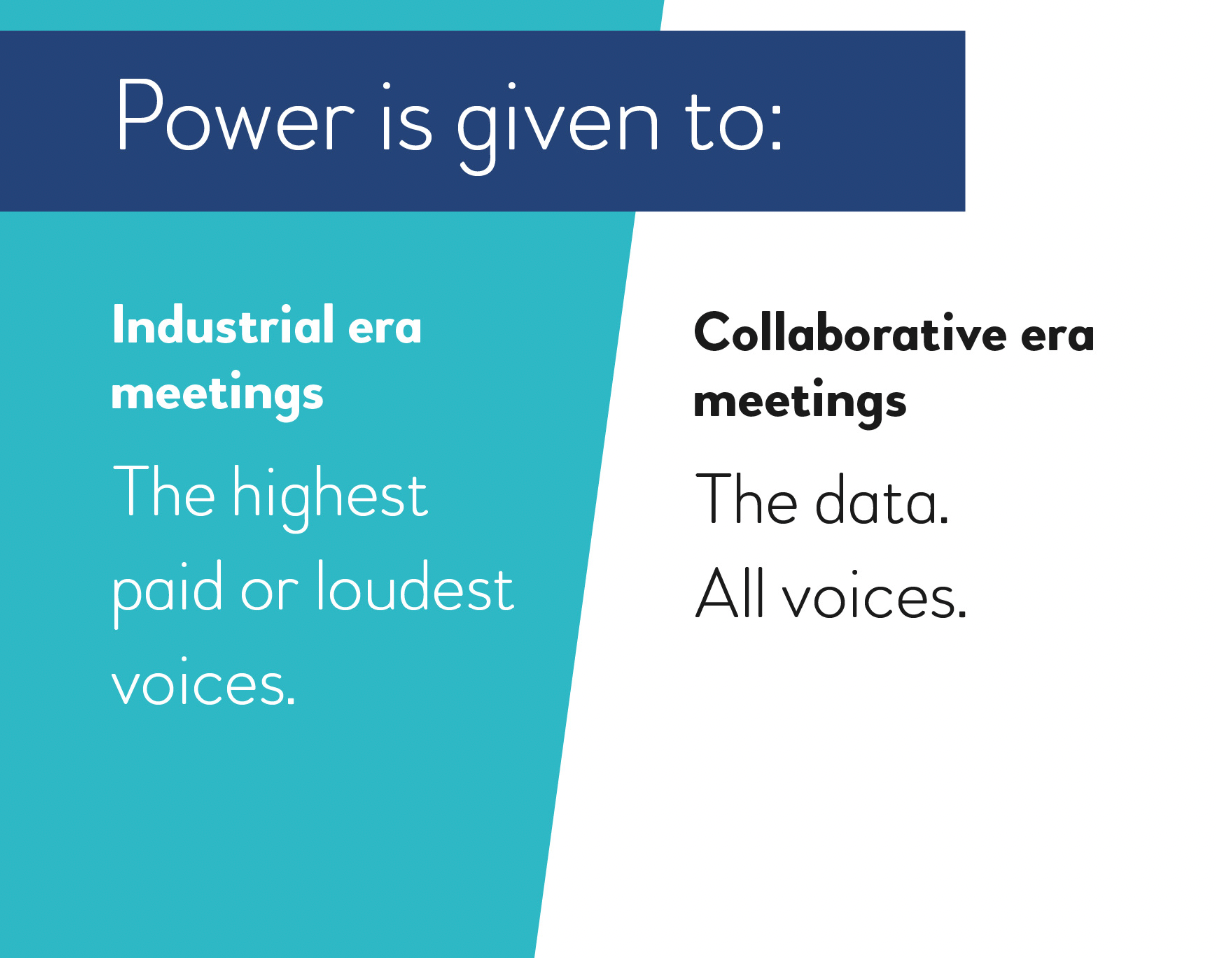
Despite so many cultural transformations, most organisations are still deeply rooted in hierarchy, not that dissimilar to organisations 100 years ago.
That hierarchy is dangerous in meetings. When we pay deference the highest paid or loudest voices (because our jobs depend on it), we lose crucial data.
It you are the highest paid or loudest person, it's on you to shift the focus to a wider base of voices and onto data, not opinion.
If you're not the highest paid person, my meeting scaffolding techniques are all designed to even out voices and privilege data.
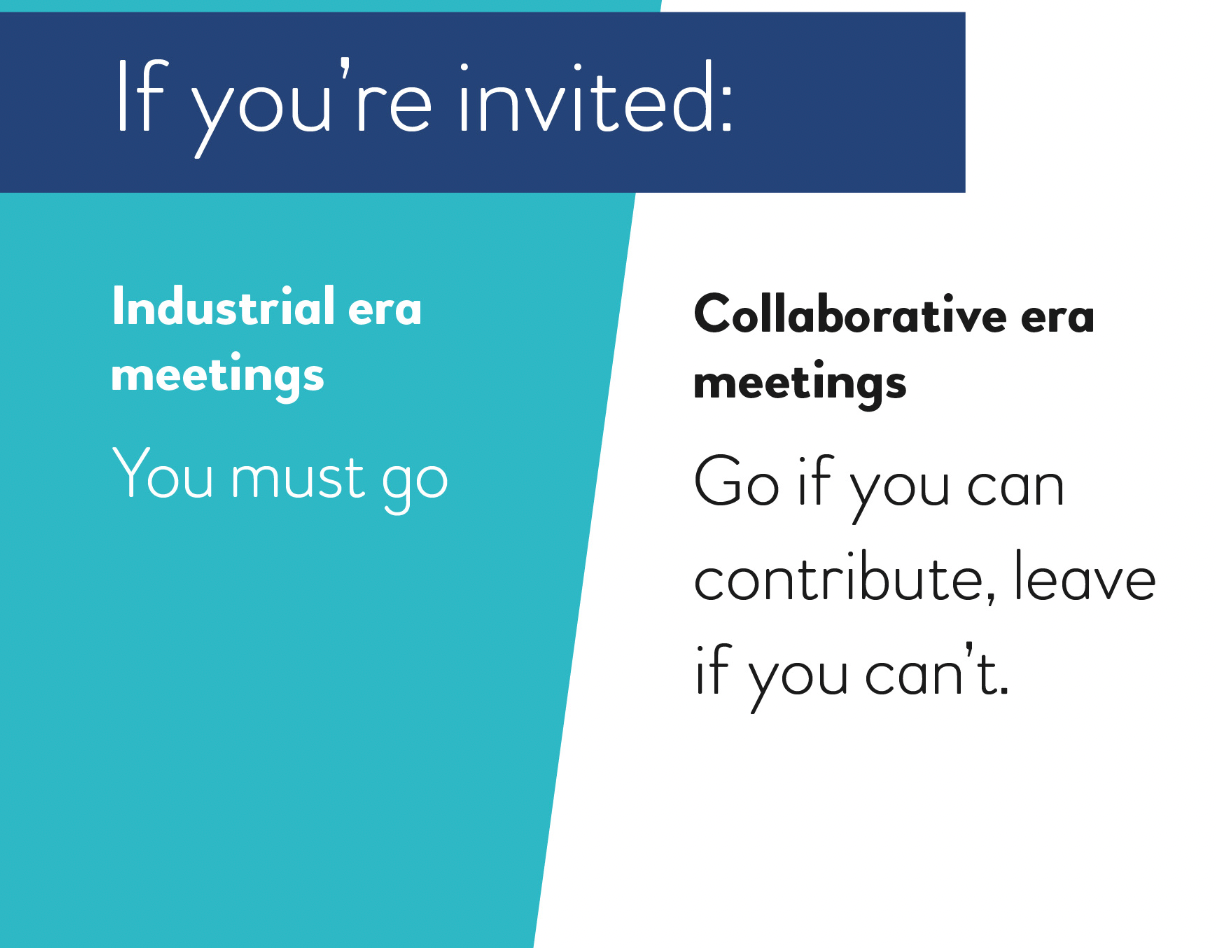
There is an invisible 'social contract' in meetings which says it's rude to leave. It comes from the industrial era where the civilising of society created rules of conduct for 'high class' meetings.
We don't need these any more. It's ok to leave a meeting. It's ok to say no to a meeting.
Let's normalise this and make it safe to do so.
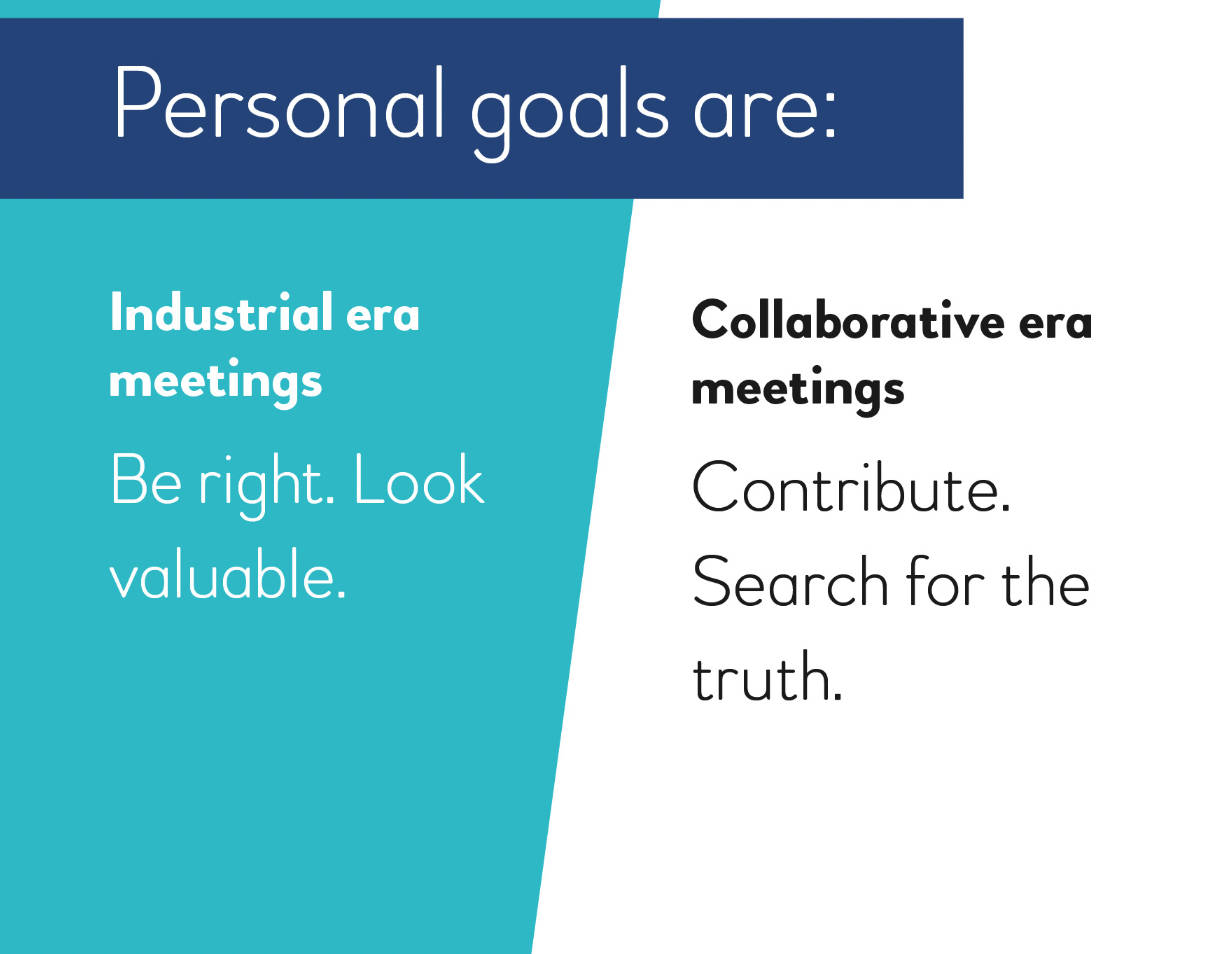
I've talked extensively about how meetings are tribal and how wasteful it is to have a meeting culture where people's main focus is on being seen as smart and valuable, not on contribution and a shared search for the truth.
Here are some ways to open a meeting to help shift people from status-protection to contribution.
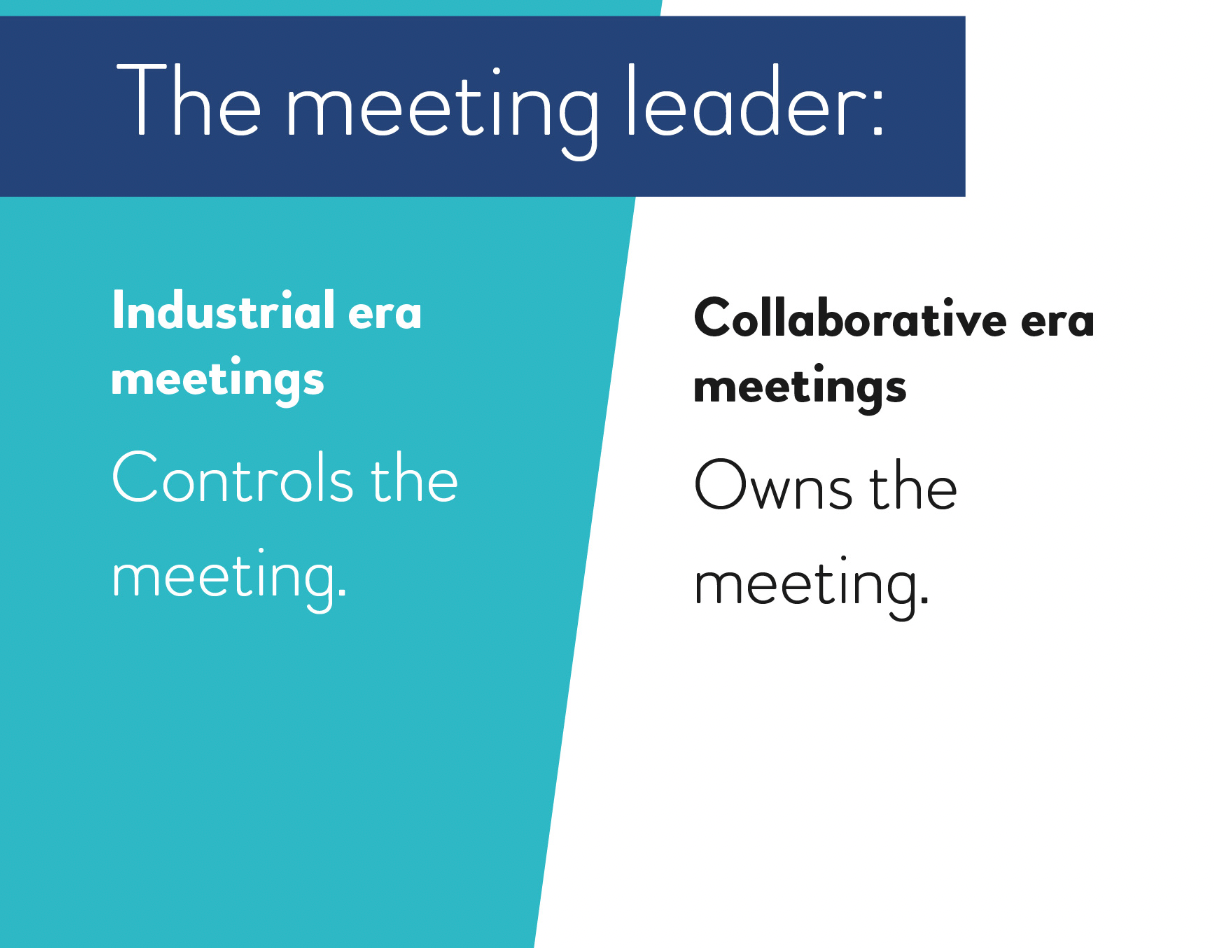
I see this all the time. A desire to control the conversation and to get to the end of the content.
The shift for the knowledge era is to OWN the meeting. To take responsibility for a clear, safe, productive container in which people can do their best work.
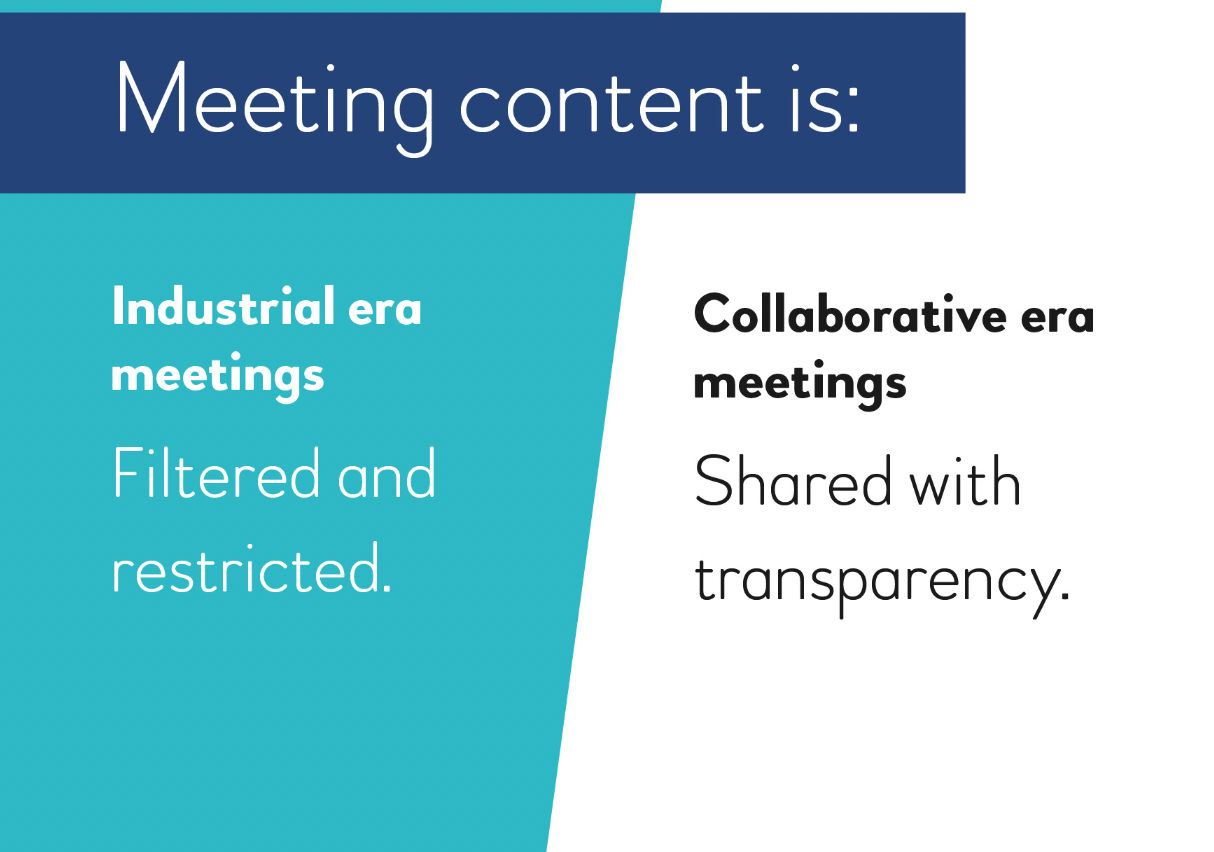
In the industrial era, the knowledge was hoarded as power. In the knowledge era, guess what... :-)
"Just keep doing your thing, the growns are deciding stuff"
Strong organisation cultures are transparent and meetings are a place in which transparent information can be shared in helpful ways, rather than spun or hoarded.
That doesn't mean vomiting detail or sensitive information at any opportunity. It just means being more honest, acknowledging grey areas and 'going there' a bit more.
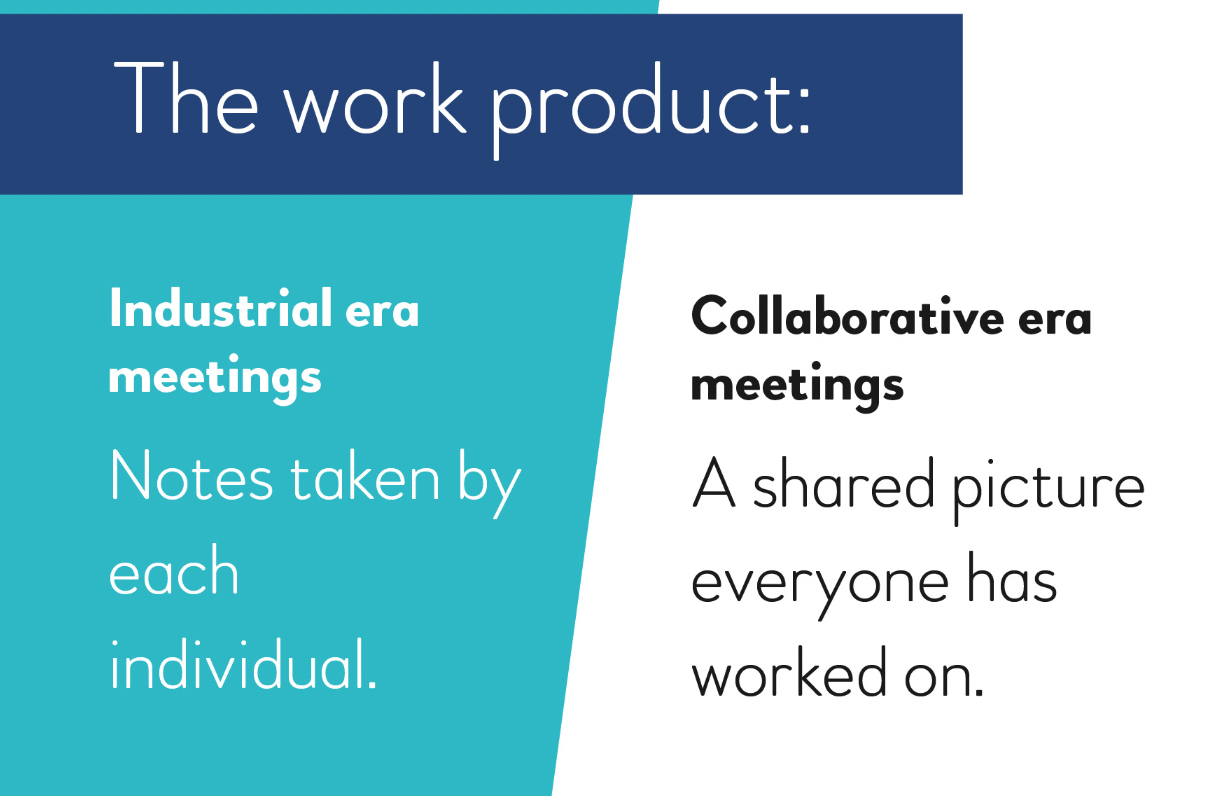
An easy shift from industrial era individualised note taking culture is to work on a shared picture. This could be a board (real or virtual), a shared doc - whatever. The point is that the group 'stands' side by side working on a shared picture together, rather than scribbling individual notes and leaving with a different idea.
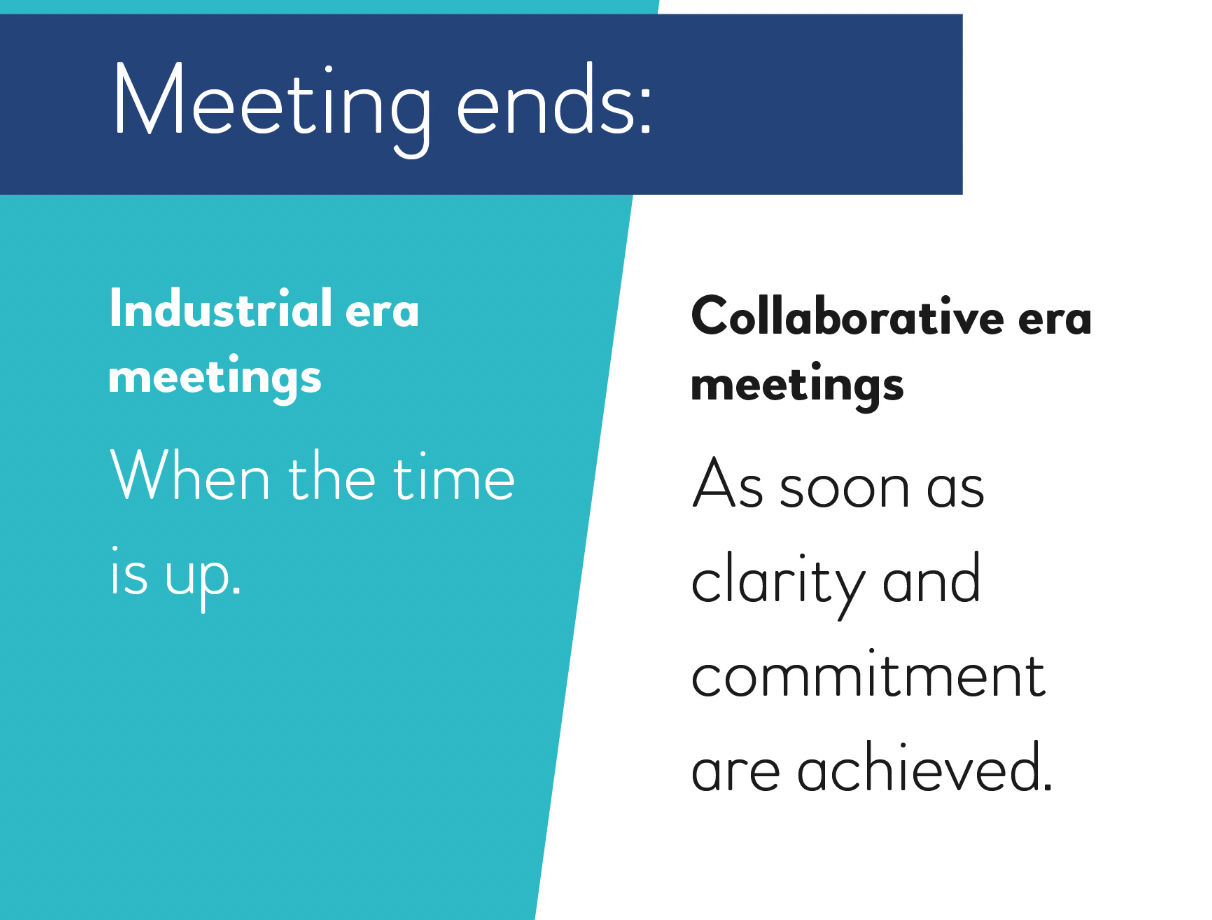
Yes, we need calendars - but we don't need to fill the meeting with discussion until the allotted time is up.
If the goal is time based, the discussion will drag and circle. If the goal is clarity and commitment, the conversation becomes freshly purposeful.
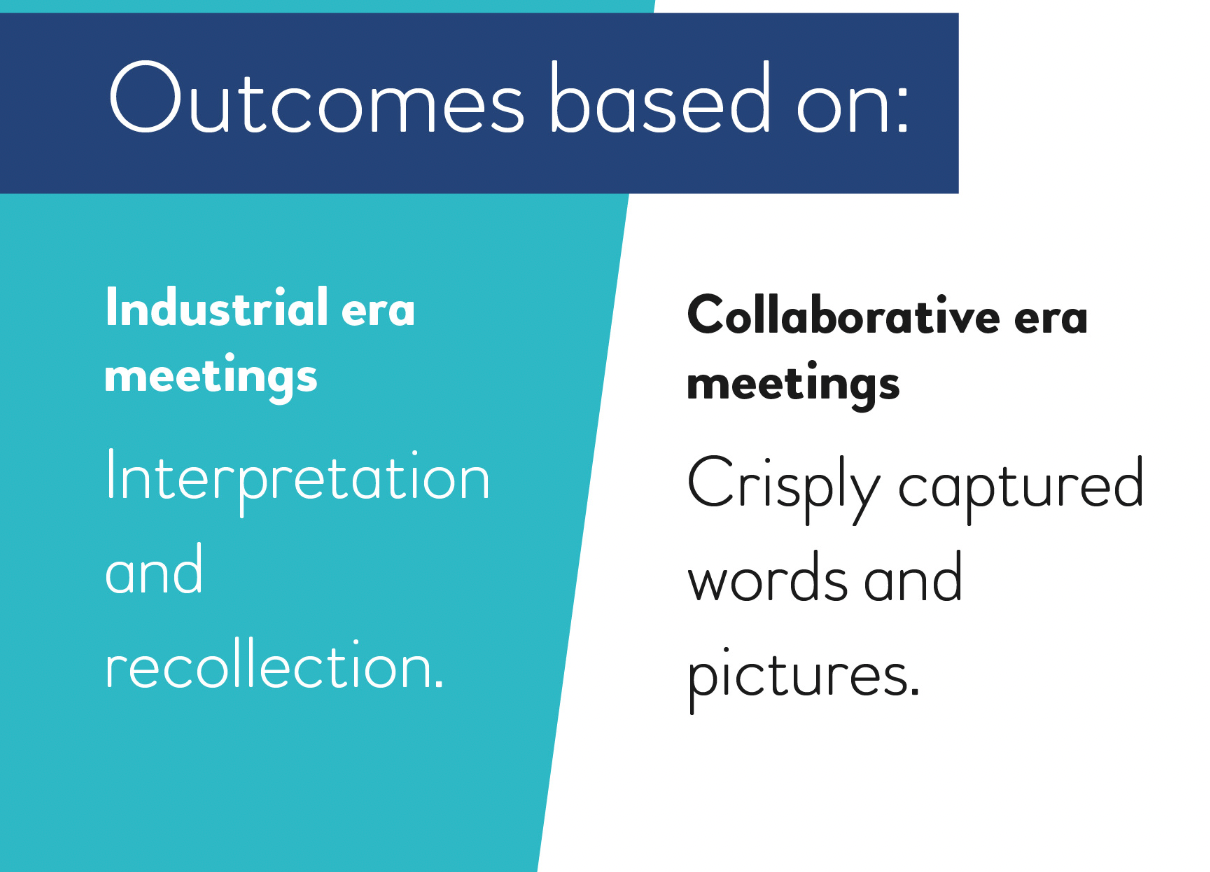
I'm not sure many people think about the 'work product' from a meeting. I do! Expensive, bright people with limited energy must create something tangible that's worth their time.
It's really easy to leave with just our own interpretation. It's much better to capture words and pictures together that have a life outside the meeting. These artefacts sharpen the group's work in the meeting itself and carry its value back into the real world.
Transform how you meet and collaborate with Dr Carrie Goucher
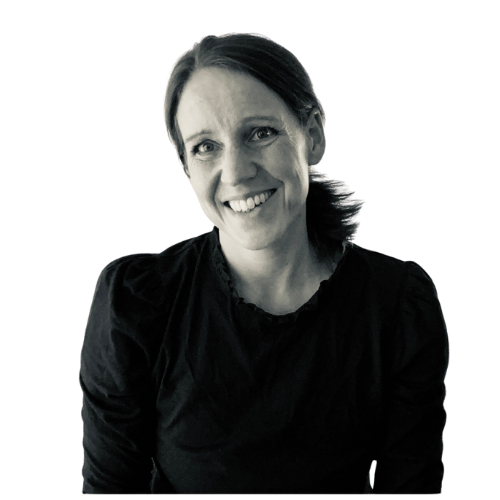
Hi, I'm Carrie! I have a PhD in meeting culture from Cambridge University and I help with big brands, scale ups and government develop fast, agile ways of working.
Get an idea like this each Thursday in my FrictionFree email.
Send me ideas each week!

